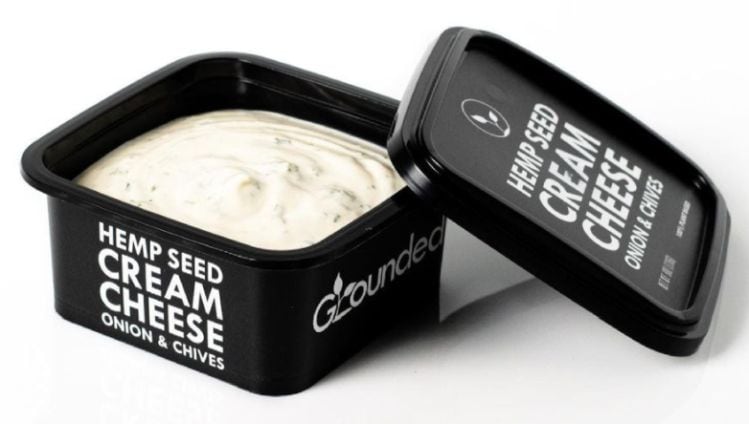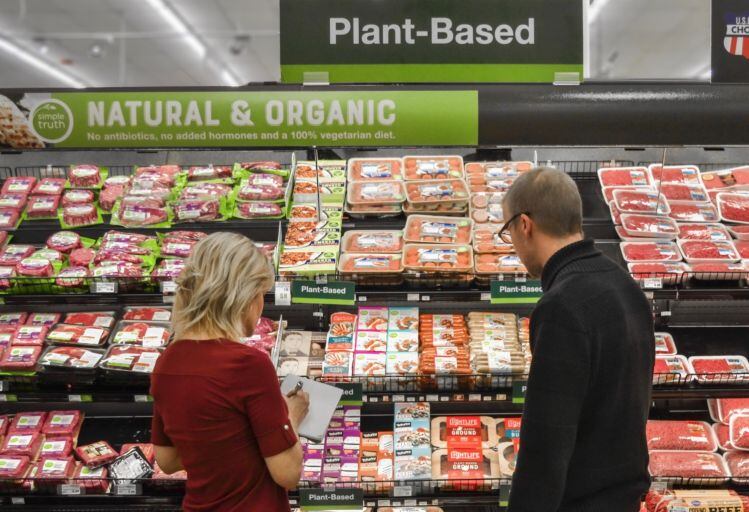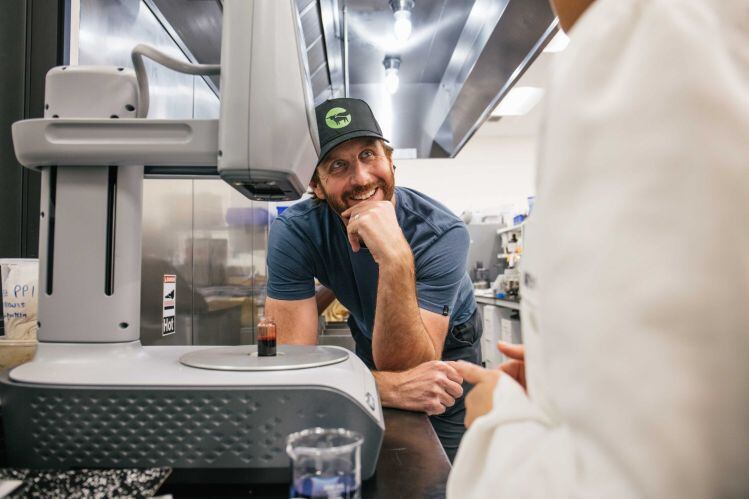“I think a lot of people have seen what's happened with Beyond Meat and Oatly and the downward revisions of the financials, and they're wondering if plant-based and alternative proteins are here to stay,” says Johnny Ream, partner at Stray Dog Capital, which has invested in multiple firms in the meat, dairy, and egg alternatives space.
“We absolutely believe that they are.”
‘We wouldn't be investing a fund three if we didn't believe this was going to be a really attractive place to put capital’
It goes without saying that not every aspiring entrepreneur on a mission to fix the broken food system is going to make it, adds Ream, but it’s also worth pointing out that there’s a lot more to this space than plant-based burgers, a market everyone agrees is pretty saturated.
Stray Dog has invested in everything from plant-based creamers (nutpods) to nut-based cheeses (Miyoko’s) to vegan collagen for cosmetics, nutraceuticals and functional foods (Geltor), he adds.
“Our first fund is top quartile in terms of performance across all US venture capital and is performing extraordinarily well. Fund two, which is a younger fund, is along that same maturity curve, and we're raising our fund three at the moment.
“The National Venture Capital Association says that on average, 25-30% of all venture-backed startups will fail, so as a portfolio manager, you have to expect roughly a third of your portfolio will fail, and that others will not hit your target net return, so you have to have a small portion of companies that dramatically make up for the losses and achieve your targets.
“We’ve lost under 10% of the companies in fund one, and not yet lost a company out of fund two. It will be a tough 12-24 months ahead potentially, but we wouldn't be investing a fund three if we didn't believe this was going to be a really attractive place to put capital.”
‘It’s truly astonishing what's being developed’
So what does he think explains the lackluster performance of some products in the meat and dairy alternatives space if the demand is as strong as he claims?
There's no one thing, but high prices, a wave of me too products, and a flurry of firms launching products before they are ready for prime time has driven poor repeat rates for some brands that have hit the market over the past year or two, he speculates.
“They need to be better than they are today. But there are better things coming. We're talking to companies coming up with fantastic innovations that may not be on the market for 12-24 months and it’s truly astonishing what's being developed. I think some investors may miss out on opportunities because they're now ignoring the space as a whole. There are going to be new products that are superior to what's out there in the market right now.”
If you look at investment in the food tech space, he says, “There's a slower pace of investing and it’s more challenging to get funding from the entire syndicate of investors to close the same size of deals. And valuations are also pulling back, so we're seeing companies raising smaller rounds than they originally set out to.
“But because valuations are coming back to a more reasonable place, there are going to be great companies that people can invest in over the next 12 months.”

‘People don't make purchasing decisions based on sustainability alone very often’
When it comes to purchase drivers for meat, egg and dairy alternatives, they are not all the same (for example, consumers may buy almondmilk because they prefer the taste to dairy, it has fewer calories, they have lactose intolerance, or milk protein allergy; drivers that don’t apply to plant-based meat), says Ream, who says investors must also assess companies and brands in this space on a case by case basis rather than writing the whole sector off as overhyped, or assuming anyone slapping ‘plant-based’ on their products is off to the races.
What is clear, however, is that sustainability alone does not provide sufficient motivation for most people to change eating habits formed over a lifetime, especially if what you’re offering is more expensive, doesn’t taste as good, and isn’t obviously any better for you, says Ream, even if it is a mission-critical factor* for his team when making investment decisions. There must be more immediate, compelling purchase drivers as well.
“At the end of the day, from what we've shown historically, people don't make purchasing decisions based on sustainability alone very often [unless all else is equal, and usually it’s not], although things are changing with younger demographics. All the evidence that we see points to the fact that health [or perceived health benefits] more than anything else is what's driving the purchasing, and some people are willing to pay a little bit more for that.”
While this arguably presents some marketing challenges for cell-cultured (a.k.a. ‘cultivated’) meat, where the whole mantra has been that this is finally ‘real’ meat rather than a plant- or fungi-based approximation, there are still health angles to pursue, he claims.
“So we’re an investor in BlueNalu, which makes cultivated seafood that’s free of mercury and microplastics, for example, so there is a health angle there, and the cleaner production environment.”
‘You can have a really successful company but if it takes 25 years to get there, it may not be venture-backable’
Asked how Stray Dog assesses startups in the cultivated meat and seafood space, which is uncharted territory in that no one has yet produced these products at real scale, he says: “We get down into really granular things like cell densities and yields [feed conversion rates], so we get advice from experts in adjacent spaces so we can understand what KPIs we need to pay attention to.
“There’s a lot of activity out there, but in terms of true progress, it's a subset of the companies that exist today [that are beyond the proof of concept stage].”
But in cell-cultured meat, as with anything else in the alt protein or food tech space, the quality of the team and the business plan is also mission critical, he says, as great scientists don’t necessarily make great founders and CEOs.
“The other question is, is the plan feasible and executable in a timeline that works for investors? You can have a really successful company but if it takes 25 years to get there, it may not be venture-backable.”
Yo Egg: ‘It might be the best alternative protein product I've ever seen in terms of mimicking a traditional animal product’
Similarly, affordability is key for alt proteins he says, noting that banking on yet-to-be-achieved technical breakthroughs or assumptions of grand scale in the future in order to achieve reasonable gross profit margins is going to raise alarm bells with investors.
“This [a clear pathway to achieving cost-parity with animal-based foods] is one of the top things that we're looking for right now,” he adds. “So as an example, Yo Foods is a new company we’re invested in in Israel that has made a plant-based egg product called Yo! Egg that I think might be the best alternative protein product I've ever seen in terms of mimicking a traditional animal product.
“It looks indistinguishable and tastes fantastic, but what we also loved about it was the fact that the machine that they use to produce this product was custom built, protected by IP, and is roughly the size of a desk, and it can produce approximately 40,000 of these eggs per day. It is truly impressive.”
* According to Ream, Stray Dog has a contract in place with sustainability metrics platform HowGood that helps partners assess the companies it is prospecting and monitor those it is working with. “We do an annual report on all of our portfolio companies across broad metrics from GHG emissions to water use to biodiversity so we can understand if our companies are making a difference, but also, whether they are creating new problems in new areas.
“We're in the process of pulling that down into our diligence process so that we’re working with HowGood on the front end before we even write a check.”

Stray Dog Capital - which invests at the seed to series A stage, writing initial checks of $1-2m with potentially larger checks available for follow-up investments - looks for food innovation firms with “an underlying technical or IP component to them…that give these companies an advantage” in their given space, says partner Johnny Ream.
It has made early stage investments are in multiple areas including cell-cultured meat (Aleph Farms, Mosa Meat, UPSIDE Foods, BlueNalu and SuperMeat); precision fermentation (Geltor, Better Dairy), molecular farming (Mozza), fungi-based whole cut meat alternatives (MyForest Foods), plant-based meat and seafood (Daring Foods, Nowadays, Chikn not chicken, Chunk, Alpha Foods, Hooray Foods, Good Catch, The Meatless Farm Co, No Evil Foods, Ocean Hugger Foods), plant-based cheese (Miyoko’s, Kite Hill, Good Planet, Grounded Foods - pictured right), (plant-based creamers (nutpods), plant-based eggs (Perfeggt, Yo Egg), chickpea proteins (Nutriati) and other food innovation platforms from plant-based dogfood to meal kits.
Plant-based meat by numbers, US retail: June 2022

According to 210 Analytics, which analyses IRI data in measured US retail channels, dollar sales of plant-based meat edged up +1.1% in June 2022 vs June 2021, although volumes dropped -4.5%.
The growth was entirely driven by frozen products, however, helping to offset double-digit declines in refrigerated meat substitutes:
- Refrig. meat alternatives, June '22 vs June '21: Dollars -14.3%, volumes -13.5%
- Frozen meat alternatives, June '22 vs June '21: Dollars +6.4%, volumes -9.7%
- Conventional meat, June '22 vs June '21: Dollars +5.7%, volumes -2.7%
Image credit: Kroger




